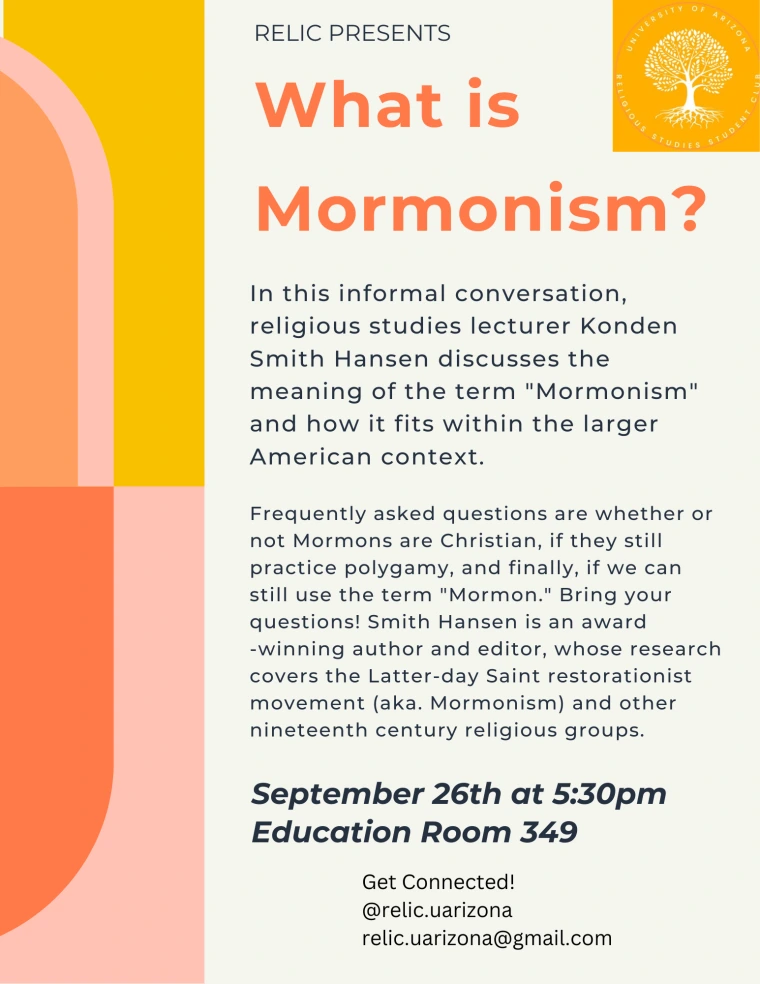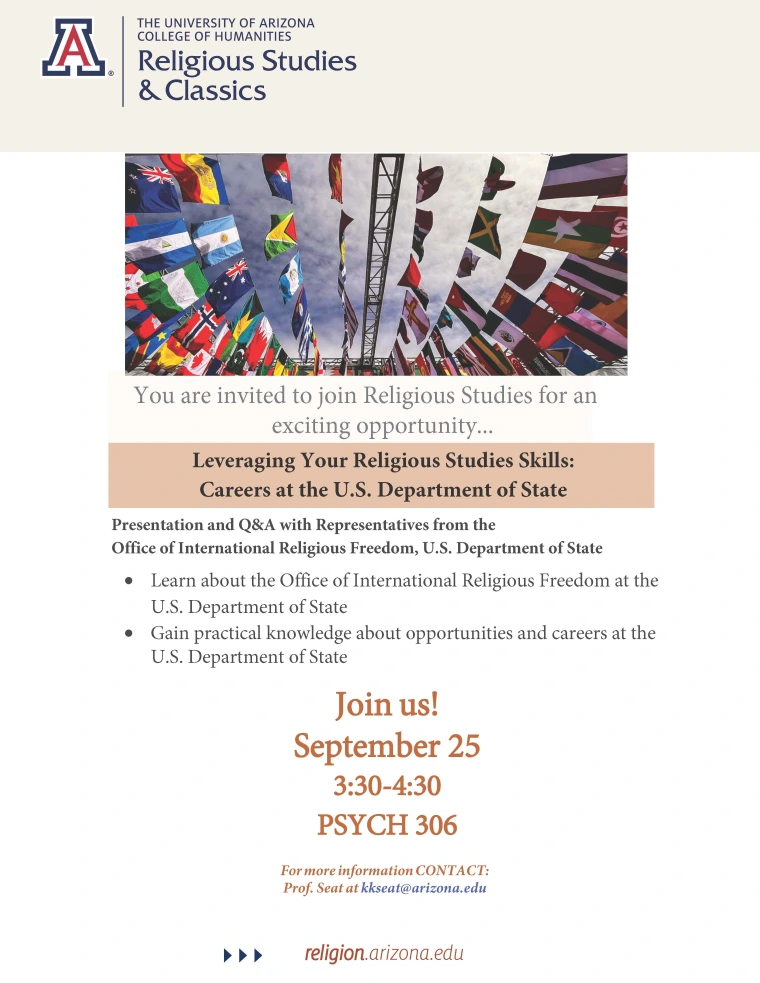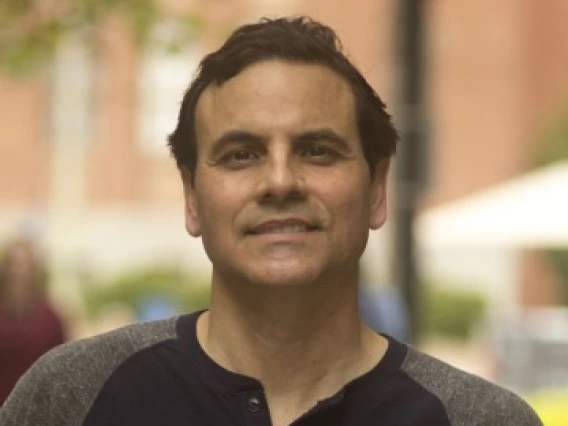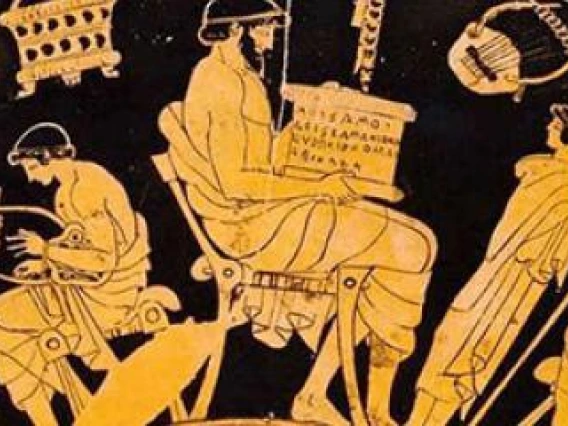Feb. 19, 2024
In Summer 2024, Dr. Nathaniel Katz will be offering Classics courses through the Arizona in Orvieto, Italy study abroad program, and the Department of Religious Studies and Classics is offering generous scholarships for students enrolling in these courses. Religious Studies and RSHP majors/minors can enroll in these courses for RELI credit.
The program dates in Italy are mid May through late June, 2024, and the Study Abroad application deadline is February 25, 2024. The beautiful, historic town of Orvieto is only one hour from Rome. The program will include field trips to Rome and other locations in Italy.
Courses
Dr. Katz will be offering the following courses for the summer 2024 Arizona in Orvieto, Italy study abroad program:
-
CLAS 222: Classics through the Ages (Gen Ed Tier 2 Humanities). Description: In this course, we will explore the towns, museums, and galleries of Italy to learn how Greek and Roman myths have inspired artists, thinkers, and ordinary people over the centuries. Religious Studies & RSHP majors/minors can receive RELI credit for this course in Orvieto with Prof. Katz; to arrange for this, please contact Prof. Katz at nathanielkatz@arizona.edu.
-
CLAS 335: The Roman Empire: Rulers and Ruled (Gen Ed Tier 2 Humanities / Exploring Perspectives, Humanist). Description: This course explores the Roman empire from the perspectives both of the ruling Romans, and of the non-Roman peoples they ruled in Italy and beyond. Religious Studies & RSHP majors/minors can receive RELI credit for this course in Orvieto with Prof. Katz; to arrange for this, please contact Prof. Katz at nathanielkatz@arizona.edu.
- CLAS/RELI 399 - Independent Study. Please contact Dr. Katz directly to discuss independent study options. (Only for majors/minors who have already taken CLAS 335 and need an upper-level CLAS/RELI course.)
Note: All the above courses can count toward the Classics major/minor, the Religious Studies major/minor, and the Religious Studies for Health Professionals (RSHP) major/minor.
Generous Funding Available
Students are welcome to apply for any and all of the funding awards listed below for which they are eligible. Any questions can be directed to Dr. Karen Seat at kkseat@arizona.edu.
2024 Arizona in Orvieto Awards offered by the Department of Religious Studies & Classics
General Arizona in Orvieto Award:
Awards of up to $1,500 are available for any UArizona student enrolled in CLAS 222 and/or CLAS 335 through the Arizona in Orvieto, Italy Study Abroad Program. Priority will be given to majors or minors in the Department of Religious Studies & Classics, but all UArizona students (with any major/minor) can apply. The number and amount of awards will be determined by the number and quality of applications received.
Arizona in Orvieto Award for Majors in Classics and/or Religious Studies:
Additional awards of $1,000-$5,000 are available for majors in Classics, Religious Studies, and/or RSHP who are enrolled in CLAS 222 and/or CLAS 335 through the Arizona in Orvieto, Italy Study Abroad Program. The number and amount of awards will be determined by the number and quality of applications received. Majors in the department will be considered for both the General Award and the Majors Award.
Majors should ALSO APPY for the following study abroad awards (more details are further below):
- College of Humanities FEARLESS INQUIRIES ABROAD Scholarship ($2,000) and other COH Study Abroad Scholarships: : Apply here
- SILLC Global Award ($1,500): Apply here.
- Cynthia White Travel and Study in Italy Award ($1,500): Apply here.
Arizona in Orvieto Award Applications are Due February 19, 2024. Application instructions can be found here.
See below for additional study abroad scholarships! Once you prepare one good letter of application for a Study Abroad scholarship, you can repurpose that letter to apply for multiple scholarships. UArizona students are warmly encouraged to take advantage of the free services offered by writing specialists at WSIP to help craft a strong letter of application. Help with writing personal statements is one of the many free services WISP offers for UArizona students. Students are welcome to visit WSIP.Arizona.edu or email writingskills@arizona.edu to schedule an appointment.
ADDITIONAL STUDY ABROAD FUNDING:
SILLC Global Award for SILLC Majors (Applications Due February 5, 2024):
Awards of up to $1,500 are available to SILLC majors to support participation in Study Abroad in 2024. SILLC majors include Classics, Religious Studies, Religious Studies for Health Professionals, Italian Studies and more. More information and application instructions can be found on the SILLC Global Award Fund webpage.
More Info
Donna Swaim International Award for Religious Studies Majors:
Majors in Religious Studies and Religious Studies for Health Professionals (RSHP) who apply for the SILLC Global Award are automatically considered for the Donna Swaim International Award for Religious Studies. Award amounts are typically $600.
More Info
Cynthia White Travel and Study in Italy Award
Several awards of up to $1,500 are available for University of Arizona students enrolled in a UArizona Classics course while participating in Study Abroad programs in Italy.
More Info
College of Humanities Scholarships (Applications Due In February Each Year):
Numerous scholarships are available for College of Humanities majors (Classics, Religious Studies, Religious Studies for Health Professionals, etc.), including the FEARLESS INQUIRIES ABROAD scholarship ($2,000) and other study abroad scholarships.
More Info
UA Study Abroad Office - Scholarships and Financial Aid:
Please contact the Study Abroad office to discuss additional funding opportunities to make your study abroad dreams a reality!
More Info
Questions? Contact Dr. Karen Seat at kkseat@arizona.edu













